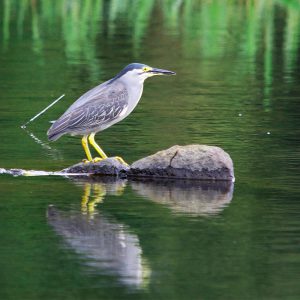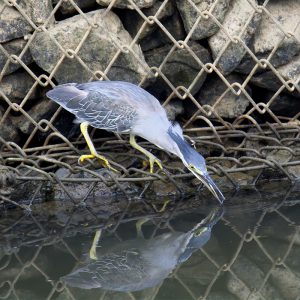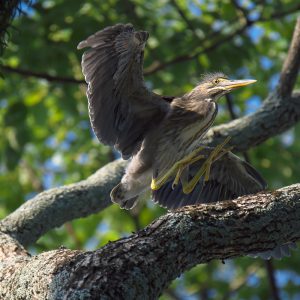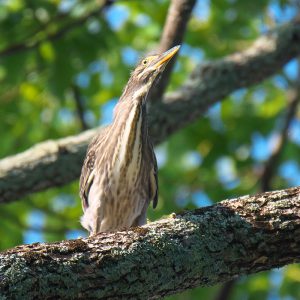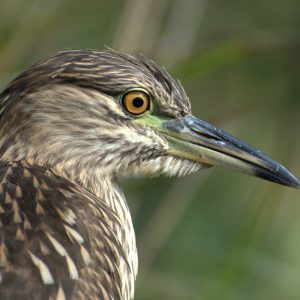むなかたが集まる
電子データベース
電子データベース
ササゴイ
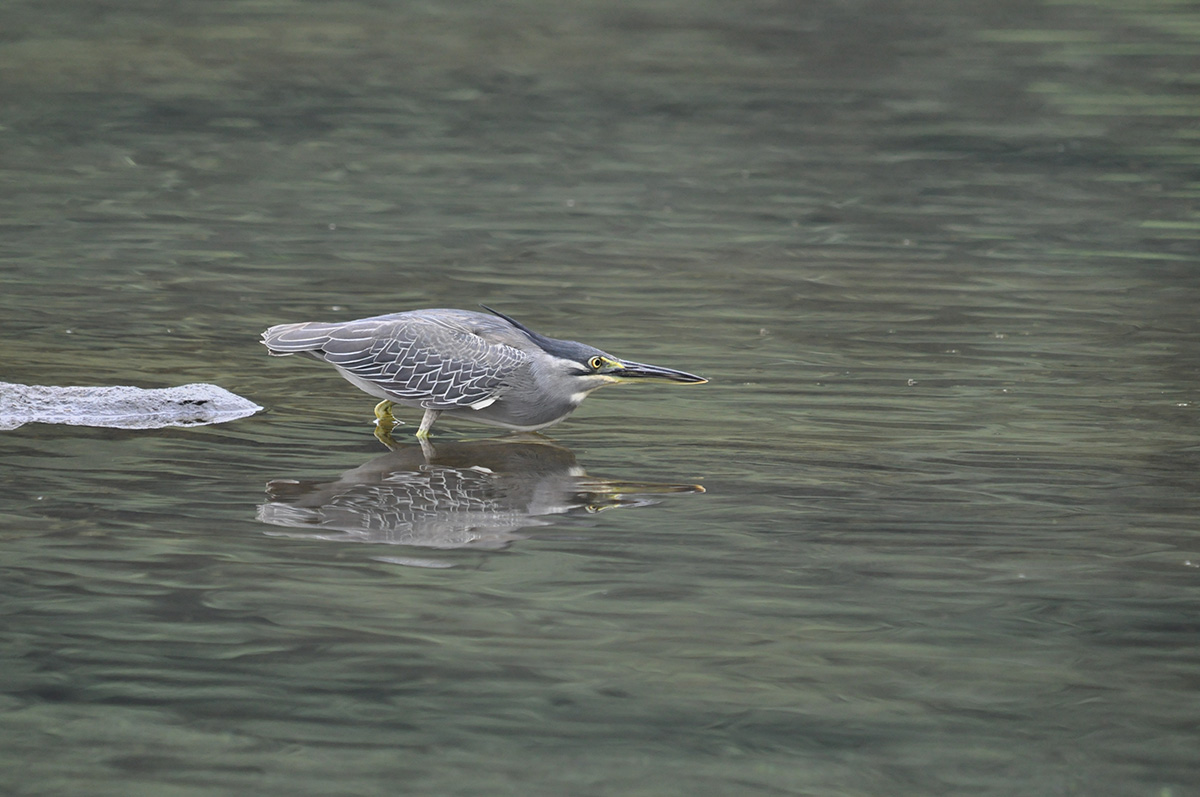
| 種目 | ササゴイ (笹五位) | 分類 |
ペリカン目 サギ科 ササゴイ属 |
学名 | Butorides striata | 英名 | Striated Heron |
|---|---|---|---|---|---|---|---|
|
ササゴイ (笹五位) |
ペリカン目 サギ科 ササゴイ属 |
Butorides striata | Striated Heron |
宗像市でみられる場所・時期
宗像市では夏鳥。島嶼部,海上を除いてほぼ全域で見ることができるが,数は少ない。
特徴
全長52㎝。雌雄同色。
成鳥は,頭頂から後頭と頬線が青みのある黒色で,後頭には長い冠羽がある。背や肩羽頬からの体下面は青灰色で,胸の中央に白い白線がある。翼は淡紺色で,白い羽縁の笹の葉模様が特徴である。嘴は黒く,ゴイサギよりも長い。虹彩は淡黄色。目先と足は黄色。婚姻色では目先が青く,足は赤くなる。幼鳥は全体に濃い褐色で,翼には白斑が点在する。体下面は白く,褐色の縦斑が明瞭である。足は暗黄緑色である。
習性
ねぐらや繁殖場から採食場所に飛行し,川岸や浅瀬などで体をかがめた不動体勢で狙いを定め,魚類やカエルなどを捕食する。
熊本市の水前寺公園で,疑似餌を使って漁をする姿が観察され,「漁をする鳥」として有名になった。現在でも,水前寺公園付近で観察される個体は,同様の行動をしている。アメリカやシンガポールでも同様の行動が観察されているという。
分布
夏鳥として九州以北から北海道南部までに生息している。アメリカ合衆国東岸部,中央アメリカ,南アメリカアンデス以東でパタゴニア以北,アフリカ大陸サハラ以南,インド亜大陸,南シナ海沿岸,東シナ海沿岸,日本列島沿岸などに広く分布する。
その他
鳥の習性に関する文献には,「漁をする鳥」として必ず取り上げられる。鳥の世代間文化伝達の例としても取り上げられることがある。
 はじめに
はじめに お問い合わせ
お問い合わせ